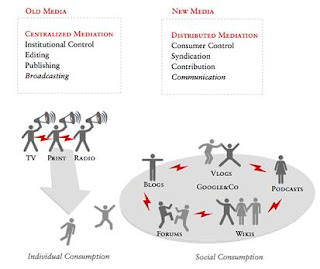Debt is analogous to weight: It’s quick and easy to pack on, but is excruciatingly slow and difficult to eliminate. Additionally, with temptation abound, sliding from healthy habits is way too easy.
I recently read
this article on AOL about the 3rd season Biggest Loser champ, Erik Chopin, who lost 214 lbs only to gain back half of it once the show ended.

Why am I not surprised? I’ve only watched a couple episodes but I recall thinking that the participants' transformations were so unrealistic that they were destined to fail once the show is over. Looks like I was right.
Thusly, I’ve concluded that I don’t want to be the PF equivalent of the “Biggest Loser”. So how can I avoid becoming a PF Biggest Loser?
1. Be Motivated For the Right ReasonsThe AOL article states:
Weighing in close to 300 pounds, Chopin says once he stopped getting attention from the show, he fell into depression and stopped exercising.
I suspect Mr. Chopin initially wanted to improve his health, but sometime during filiming, the emotional highs of being a TV celebrity replaced (or surpassed) that motivation. Once that celebrity faded, he lost his way.
In my case, I only seem to be motivated by anger or disappointment rather than an innate desire to improve myself. For example, I wasn’t motivated to improve my pathetic financial state until
American Express rejected me for a credit card. And I’ve only recently become motivated to speed up my credit card payments when
Chase unilaterally changed the terms of my debt repayment.
A fickle or passing emotion is never a good foundation upon which to establish healthy habits, financial or otherwise. I need to learn to do the right thing for my own sake.
2. Debt Elimination and Weight Loss Are Long TermOn the
Oprah Show, Mr. Chopin says, "When you're going on that kind of a journey [on The Biggest Loser], there's a finish line... Beyond the finish line, I'd heard from so many people maintenance is the hardest thing. [I used to think], 'Try losing 200 pounds.' But maintenance really is a lifetime."
Similarly, I think many people implement an unrealistically Spartan and stringent debt elimination regimen that probably can't be sustained for the long term (think Dave Ramsey's "gazelle intensity"). It's easy to slide back to old (bad) habits when you feel deprived during the process.
That's why I think it's more important to develop realistic and moderate plans that can be incorporated into your normal lifestyle. I know I lack "gazelle intensity" but that's okay. I'd rather have a slow, steady plan that I know I'm capable of accomplishing than one that may cause me to regress.
3. Life Happens - Be Prepared to Deal with ItAt some point, things happen that are out of our control, causing us to spend/eat more than we planned. Often times, binges come about due to lack of planning and preparation.
A while back, a commenter to one of my posts made the following remark:
“$12,500 in credit card debt is not [Shtinkykat’s] problem nor is the car loan. The problem is [her] $100k student loans. … And btw stop 'saving' and start paying off that … debt. Your savings is pointless if you continue to have a large debt.”
I’ve continued to struggle with whether to stop saving and to dedicate all of my paycheck minus monthly expenses towards eliminating debt.
The commenter definitely makes a good point. For instance, in 2006, I stopped contributing to my 401k while I struggled to get my monthly expenses below my monthly income. As I previously stated, this was the smartest move I made, since I stopped contributing at the height of the stock market bubble. Secondly, I also recognize that paying off debts provide guaranteed returns, as opposed to the stock market, where I have to take risks to get some returns.
But we all know emergencies don't come about neatly one at a time. When you don't have a security net or an emergency fund, it's easy to get right back into debt.
Now that my monthly expenses are within my monthly income, I’ve started contributing to my 401k again and I’ve been putting a little bit of money aside into my savings every month. I may not be eliminating my debt as quickly as the folks on Biggest Loser shed their weight, but I'm not regaining my debt either since I have the fund to pay off most emergencies.
4. Have An Ongoing Support NetworkI suspect the biggest problem for the folks on the Biggest Loser after the show ends is that their support group of professional fitness trainers and dieticians disappear. It's important to have an ongoing network of people who will support, encourage and provide guidance and useful tips.
Normally, that support group should be the family. For example,
Ambercouric from Becoming Debt Free in 2009 dealt with her husband's pay cut by asking her entire family (including kids) to provide input as to what gets cut from the family budget. By getting her family involved, this becomes a group effort and the entire family is in it together.
For me, the PF blogging community has been my support group. I haven't been able to confess my debts to any of my friends or family members so I air my frustrations and jubilations on my blog. And for that, thank you all. You've been great. With your help, hopefully, I won't be a PF Biggest Loser!















 All kidding aside, I don't think the Great Depression, Pt. Deux will be upon us. This excellent article in
All kidding aside, I don't think the Great Depression, Pt. Deux will be upon us. This excellent article in 















